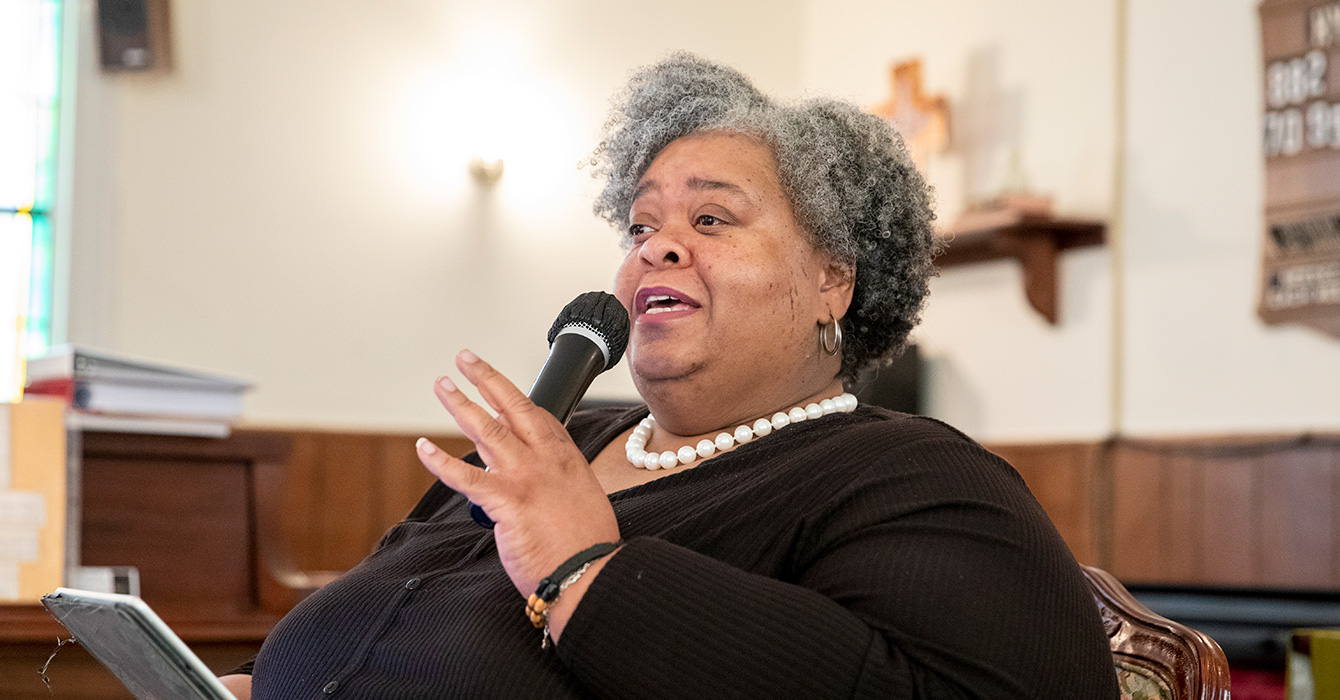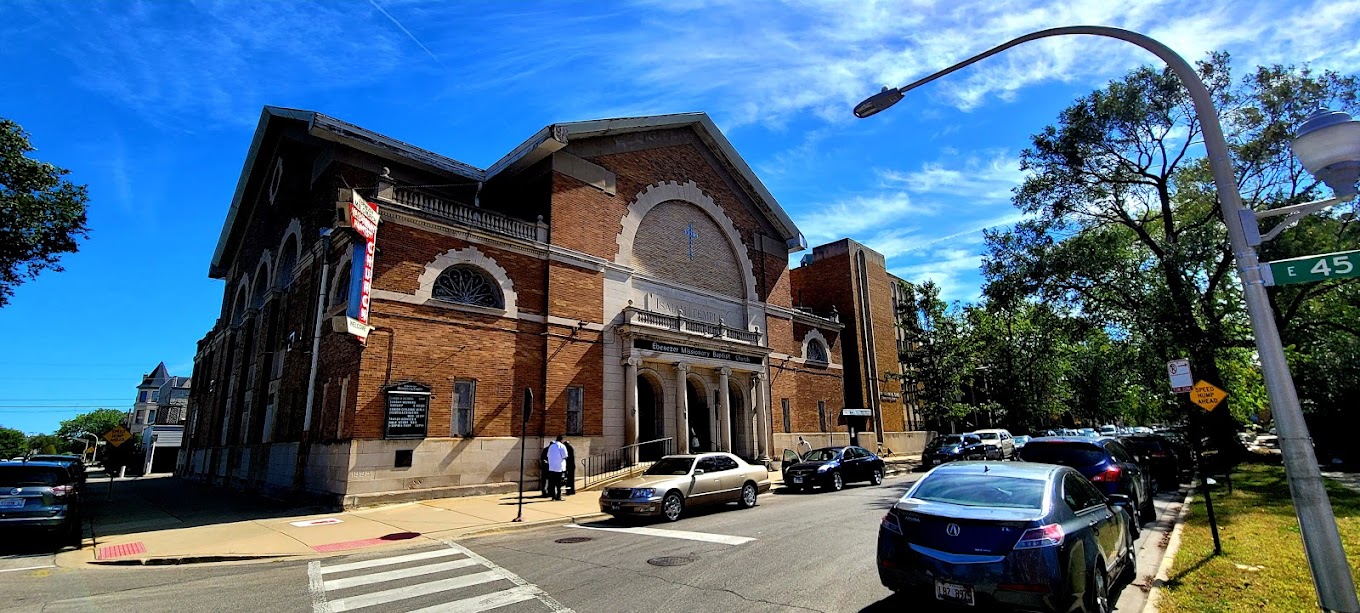By late September 2022, as the senior pastor of Great Hope Baptist Church in Richmond, Virginia, the Rev. Melvin F. Shearin II had worked every Sunday since the beginning of the year.
Although he was hired as a full-time pastor seven years ago, and he views this work as a calling, he has found that his compensation does not fully cover health care and other essentials.
So in addition to his standing duties as senior pastor, Shearin has taken on additional employment. Over the years, he has worked as a call center manager and at a local gym and has even started his own travel business, to ensure that he can meet his financial obligations.
Bivocationalism is not a modern phenomenon, especially for pastors in historically Black churches and those that serve Latino and immigrant populations. According to the 2021 report of the National Congregations Study, one in three congregational leaders (35%) is bivocational, and one in five (18%) serves multiple congregations. And the number is growing as congregations shrink.
“Seeing pastors doing part-time ministry is nothing new. It goes back, of course, to biblical times and the apostle Paul being a tent-making pastor,” said the Rev. G. Jeffrey MacDonald, the author of “Part-Time Is Plenty: Thriving Without Full-Time Clergy.”
MacDonald, who himself works as a reporter, consultant and United Church of Christ pastor, pointed also to Peter and other disciples — fishermen who left their nets to follow Jesus but still continued to fish.
In fact, even in more affluent countries, it’s only been during the last couple of centuries that it became more common to have one pastor full time in one local setting, MacDonald said. It wasn’t affordable until congregations started to have more wealth in the late 19th and early 20th centuries.
These days, pastors may choose bivocationalism for personal reasons, such as pursuing a second calling or career by choice, but also for economic reasons, out of necessity. That can be difficult for pastors and congregations that regard bivocationalism as a sign of failure.
“An unstated concern is often stigma. North American churches are shaped by a full-time bias, supported by the beliefs that money equals success and bigger is better,” noted the Rev. Dr. Darryl W. Stephens. He is the director of the Pennsylvania Academy of Ministry, an ordained deacon in the United Methodist Church and the editor of the book “Bivocational and Beyond: Educating for Thriving Multivocational Ministry.”
“Even in traditions in which bivocational pastorates are the norm,” he said, “people often measure themselves and their churches against a full-time ideal.”
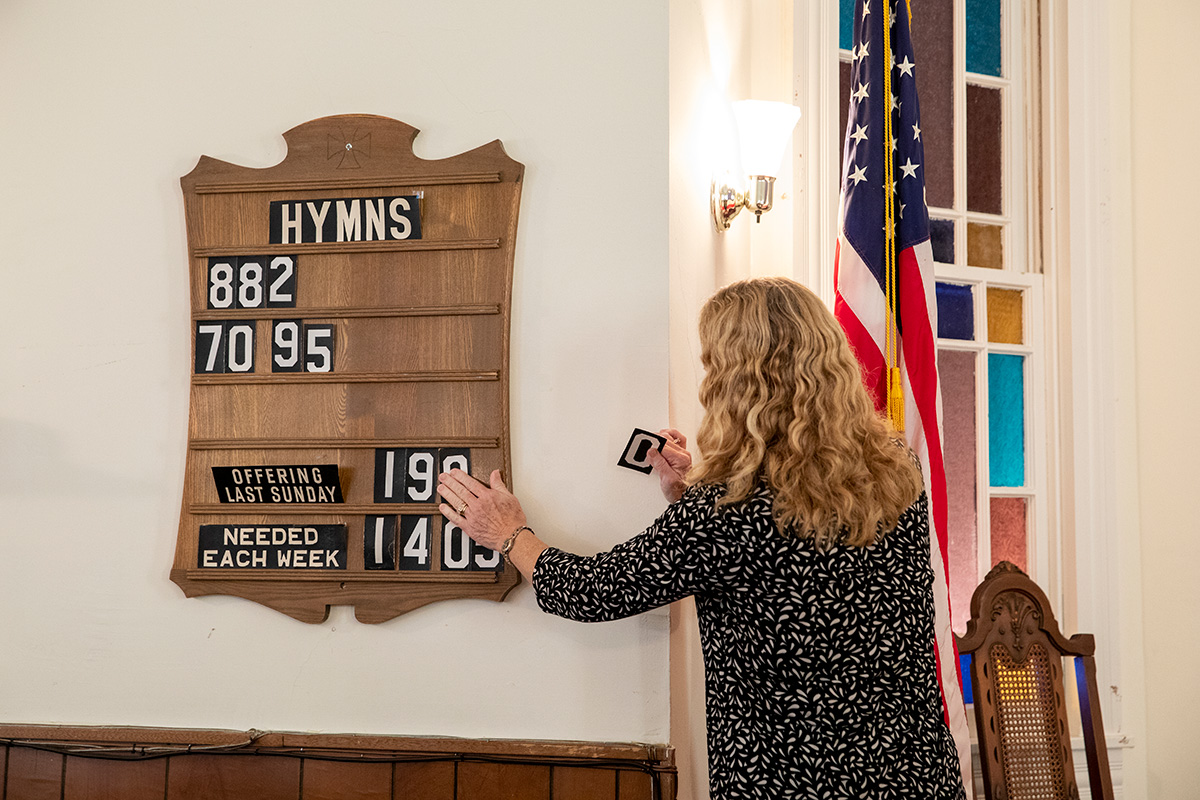
Bivocationalism as an economic necessity
The context for decisions to be bivocational can vary, but economic pressure is part of the picture.
In the United States, the mean annual wage for clergy is $57,230, and the mean hourly wage, $27.51, according to 2021 data from the U.S. Bureau of Labor Statistics. (Some mainline denominations set salaries for their clergy, while others do not.)
Pastors’ salaries have remained stagnant or declined compared with those of other helping professionals like social workers and teachers, said Elise Erikson Barrett, the coordination program director for the National Initiative to Address Economic Challenges Facing Pastoral Leaders, an initiative of Lilly Endowment Inc., hosted by the Center for Congregations.
Church membership has continued to slip, and the pandemic has many church leaders feeling uncertain about the economic picture. At the same time, inflation has skyrocketed, with consumer prices seeing their largest increase in 40 years in June 2022, according to the U.S. Bureau of Labor Statistics.
Some churches have adjusted their budgets, and more pastors may find that a second or even third job is needed. But context for these decisions varies.
Do you think of bivocational ministry as “less than” full-time ministry? If so, what might change your mindset?
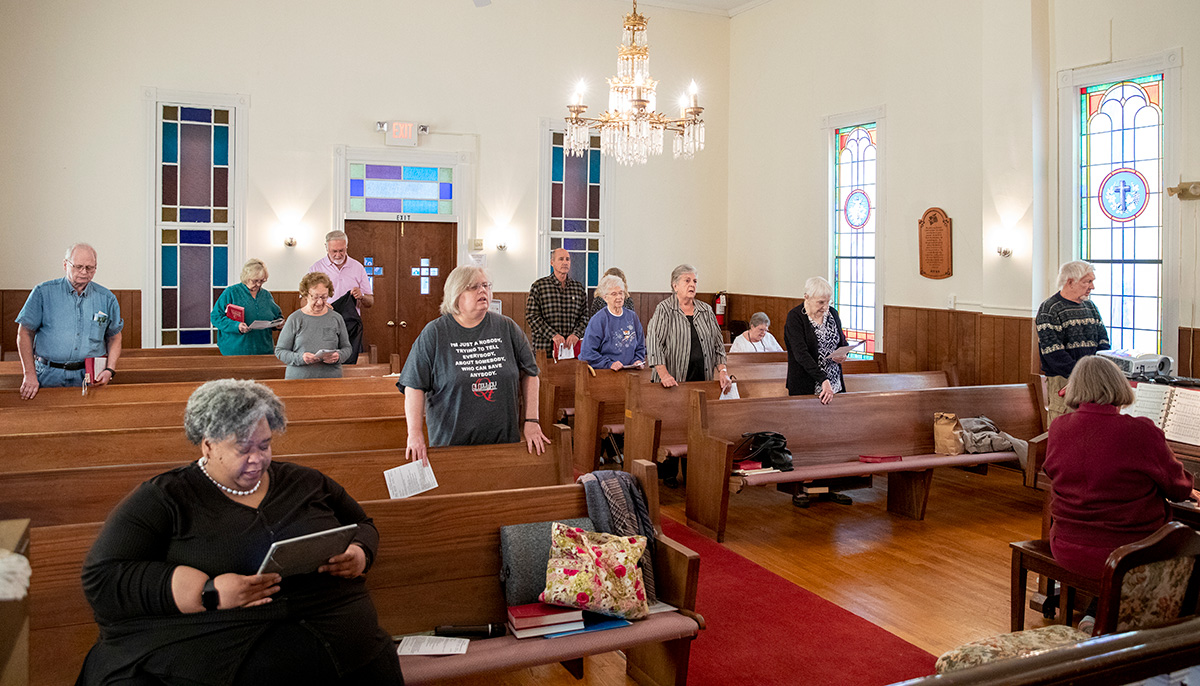
For instance, in a setting where divinity school is required for ordination, seminary debt can be the pressing economic issue, Barrett said. While concerted efforts are being made to reduce the cost of a theological education, the U.S. student debt crisis can affect pastors in the same ways it affects the rest of the population, she said.
In a setting where a master’s degree isn’t required but a church’s budget doesn’t offer a benefits program, “it may be medical debt or health care that’s the presenting economic issue,” she said.
And pastors who are female, as well as pastors of color, are more likely to be in low-income, small or rural congregational settings, Barrett said.
How might having a bivocational pastor benefit both the clergyperson and the congregation? What might be the losses?
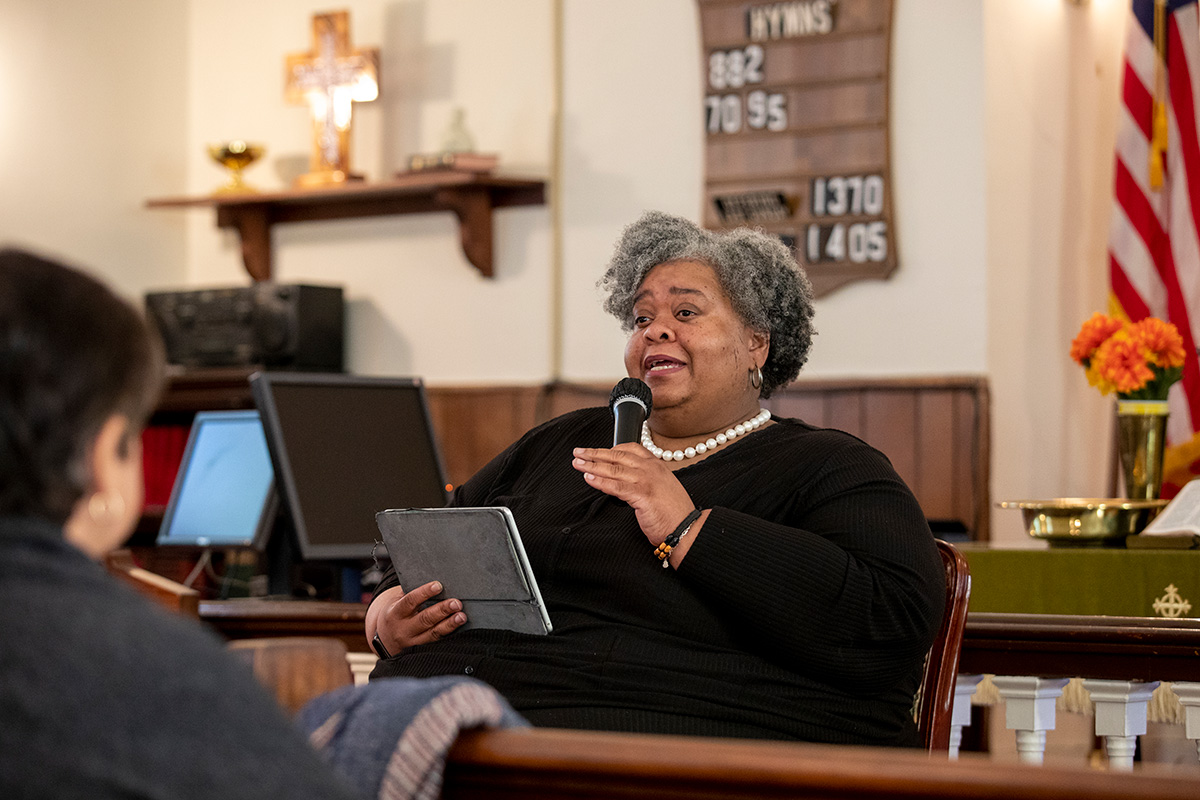
The Rev. Rochelle S. Andrews is the senior pastor at Pleasant Grove United Methodist Church in Ijamsville, Maryland, as well as the associate director of the Center for Public Theology at Wesley Theological Seminary.
She said she appreciates both of her jobs, because they appeal to her passions, but acknowledged the economic side of bivocationalism for many Black pastors. Andrews, who is ordained in the African Methodist Episcopal Church, noted that redlining and other systemic racism is a reason many Black churches still don’t have the same resources as some of their white counterparts.
Given this history, white churches would do well to look outside themselves for guidance in considering bivocational ministry, MacDonald said. “This is an extremely rich area for predominantly white churches to learn from churches that have a different racial and ethnic mix, because the experience and know-how is largely vested in the Black, Asian and predominantly immigrant churches.”
Mindset matters
Many long-term bivocational pastors do consistently manage and balance their roles. But for pastors accustomed to being fully funded through singular positions, bivocationalism can feel like a shock.
These pastors’ challenges can be emotional and psychological when they move from only serving at church to having to clock in elsewhere, said the Rev. Dr. Ira E. Antoine Jr., who works as both an ordained Baptist minister and the director of the Bivocational Pastors Ministry for the Baptist General Convention of Texas.
Still, people considering bivocationalism should look at what they are gaining, Stephens said, and not regard it as a loss.
“In some ways, [bivocationalism] is liberating. Freeing. I get to set my own schedule in many ways. In other ways, I’m constantly running up against that full-time bias in my own mentality,” Stephens said.
“I have to remind myself that I’m good at what I do, that I’m called to teach — in my case, my ministry is teaching, research and writing — and that I’m not defined by my paycheck. And I have to keep reminding myself of the advantages of being bivocational, the flexibility and things like that.”
And though pastors may sometimes feel “less than” if they are bivocational, or that a congregation is somehow “less than” because its pastor has to have two jobs, “we’re trying to change that course and that mindset,” Antoine said.
The Christian Reformed Church in North America has begun offering one of many experiments in bivocational ministry, in this case providing a yearlong Bivocational Growth Fellowship to folks considering a change. It provides financial support, resources and a peer group to help with the discernment process. The fellowship is part of a larger CRCNA project called Financial Shalom, funded by Lilly Endowment Inc.
The first cohort convened in 2021. Thirty-five pastors have taken part so far. Monthly gatherings on Zoom, hosted by a longtime bivocational pastor, offered participants a chance to talk with entrepreneurs, people pursuing a “side hustle” and financial planners, among other guests.
Some participants were already working and planting a church, some were right out of seminary, and others were considering a switch from full-time ministry.
“[Bivocationalism] doesn’t work for everybody, but for those who did it, having the group of peers together was the big win,” said Zach Olson, ministry vocational consultant at the CRCNA.
Who in your life could advise you about managing a transition to bivocational ministry? Are there people within or outside your denomination or tradition who could share their wisdom?
Advice for pastors considering bivocational ministry
For pastors considering bivocationalism, whether it’s by necessity or because they feel called to it, there are key steps to take, experts and practitioners say.
Secure a flexible second vocation. In today’s digital world, where so much work can be done remotely, there is room for bivocationalism for pastors, said MacDonald, the pastor and journalist.
Pastors should understand that carving out a second vocation is possible, but they should also ensure that it fits into their lives. For instance, if a pastor prizes being physically present at church on a regular basis, a second job with a long daily commute may not be a good fit.
In addition, if pastors are seeking an outside job where they would report to a supervisor — as opposed to setting their own tasks or hours by working as an entrepreneur, consultant or freelancer — they should ask questions about expectations, duties and the work schedule during the interview process.
Shearin, the pastor of Great Hope Baptist Church, said this is an important step because there may be tasks that aren’t included in the general job description. Shearin also advises asking whether the job will provide “wiggle room” to do funerals, weddings or other church events.
He said the crucial question for pastors is, “Can you find a job that’s willing to work with you?”
Communicate with the congregation. Oversight of second jobs can vary, with hierarchical churches potentially requiring approval of the bishop if the pastor or priest is to work outside the parish, MacDonald said. But whether or not pastors need this approval, communicating with the congregation about the situation — and getting buy-in — is a good idea.
“So much of this going well relies on a healthy, mutually respectful and mutually caring relationship between a pastor and the congregation, where economic issues can be discussed honestly and openly and without blame and shame,” said Barrett, the coordination program director for the National Initiative to Address Economic Challenges Facing Pastoral Leaders.
There are many ways that bivocationalism can work, but adaptation can be hard, she said. “The thing that can make it life-giving is that healthy relationship and a shared vision for why we’re even doing this in the first place.”
Acceptance from the congregation can be essential to a good experience.
“The success of bivocational pastorates hinges, in large part, on the ability of the congregation to embrace an understanding of ministry that differs from what they may have been taught to expect, at least in predominantly White, mainline Protestant traditions in North America,” Stephens wrote in “Bivocational and Beyond.”
Setting clear boundaries is also a good idea, MacDonald said, noting that churches can confirm expectations by drafting a new contract to describe the responsibilities of both the pastor and the congregation.
“In a church where they really understand that you are their part-time pastor,” Andrews said, “they recognize that you have a life outside, other than them, and you just find a balance.”
How might you approach your congregation about discerning whether to move to bivocational or part-time ministry? Would they embrace an understanding of ministry that differs from what they might have expected?
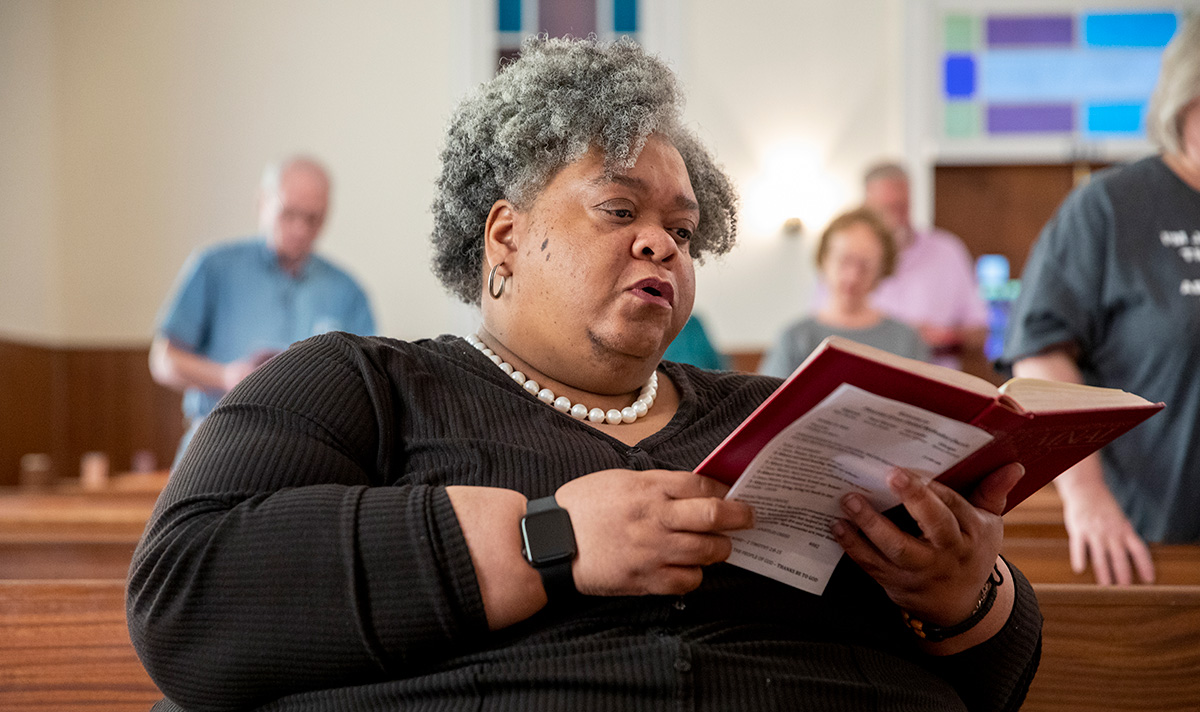
Plan ahead and practice good time management. When pastors have two (or more) sets of professional obligations, planning and time management are essential — especially since a second job can be exhausting.
To help with organization, Antoine, who has two full-time jobs, said pastors should plan their calendars as much as a year in advance, blocking out key professional and personal events such as vacations, holidays, scheduled commitments (when known) and more.
They should also determine how much time, on average, they need to dedicate to each job to do each one successfully, then plan their days accordingly. And though unexpected events do happen, it can be helpful to talk with church staff and members about their desired schedules, said Antoine, who is with the Baptist General Convention of Texas as well as serving as a pastor.
Embrace remote work, self-care and help from others. All can be important to avoid burnout.
Andrews said a difference for bivocational pastors is that they may not physically be at the church office every weekday. But there are other ways these leaders can show care for their congregations.
For instance, Andrews said her church members can call her cell anytime (she texts back if she can’t answer). She does Bible study Tuesday nights via Zoom, and she continues to preach in person on Sundays.
“As a part-time pastor, find the ways you can be present for them, so that when there may be times you can’t because something comes up, they don’t feel it,” Andrews said. “Hearing them, listening to them, really, really goes a long way.”
Pastors also can do tasks like planning sermons and the order of worship (as Andrews does weekly) while off-site.
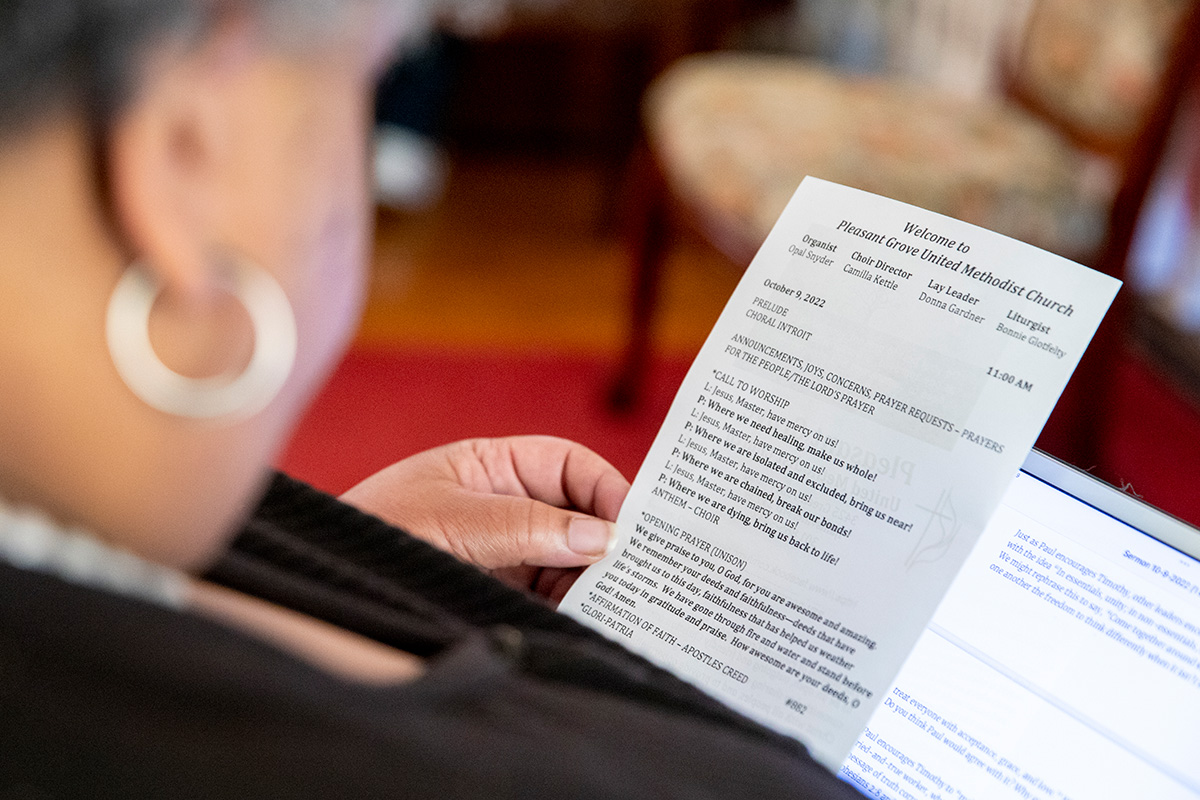
Pastors don’t have to be all things to all people, Antoine said, noting that it’s OK to delegate some tasks. After working 40-plus hours per week at his staff job and 32-40 hours per week on the church side, he planned a sabbatical from church this July and synced it with two weeks of leave from his second job.
“Self-care must be intentional, and you have to overcome the guilt,” he said.
Depending on the activity, laypeople, elders or other church staff can pitch in. Perhaps a layperson can do certain outreach activities, or a church elder can select hymns. Some theological or sacramental duties are those of pastors alone, MacDonald said, but clergy certainly don’t have to do everything themselves.
Be open to the joys and benefits of bivocationalism. Of course, this orientation may be easier if the pursuit of bivocationalism is a choice as opposed to a necessity. But either way, benefits can be more than economic. They also can include being in a position to help more people, widening a professional knowledge base and living out a calling — or callings.
For example, MacDonald, who has worked as a pastor and journalist for more than two decades, has been able to both research bivocationalism and practice it, he said. When he learned he could serve a church and continue his prior profession, it was exciting, he said.
“I learn stuff in journalism all the time that I will refer to in a sermon, and it’s a blessing. It’s a benefit to the congregation,” he said. “I’m a more interesting pastor because I move around and interview interesting people.”
Andrews also said that her job offers new chances to connect with community members and leaders. And seeing a pastor with a second job can help community members better relate to these faith leaders, she said.
“This is a real opportunity that’s opening up,” MacDonald said. Instead of limping along, he said, bivocationalism can be a liberating way for laypeople to spread their wings in ministry and for the church to establish community partnerships.
And, he said, it can allow pastors to become “more stable, more stimulated, more creative, have more to offer to your church and really find that this may be a great blessing to the pastor as well as to the congregation.”
Burnout is an issue for pastors, whether they have one job or more. How might you manage bivocational ministry so that you don’t burn out?
Questions to consider
- Do you think of bivocational ministry as “less than” full-time ministry? If so, what might change your mindset?
- How might having a bivocational pastor benefit both the clergyperson and the congregation? What might be the losses?
- Who in your life could advise you about managing a transition to bivocational ministry? Are there people within or outside your denomination or tradition who could share their wisdom?
- How might you approach your congregation about discerning whether to move to bivocational or part-time ministry? Would they embrace an understanding of ministry that differs from what they might have expected?
- Burnout is an issue for pastors, whether they have one job or more. How might you manage bivocational ministry so that you don’t burn out?

